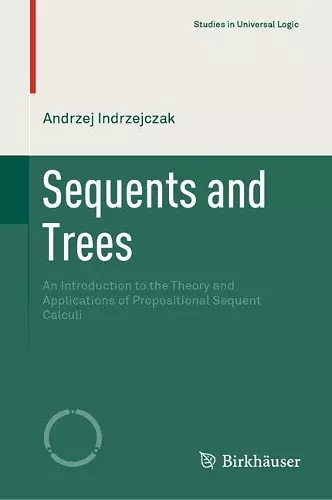Sequents and Trees
An Introduction to the Theory and Applications of Propositional Sequent Calculi
Format:Hardback
Publisher:Springer Nature Switzerland AG
Published:17th Dec '20
Should be back in stock very soon

This textbook offers a detailed introduction to the methodology and applications of sequent calculi in propositional logic. Unlike other texts concerned with proof theory, emphasis is placed on illustrating how to use sequent calculi to prove a wide range of metatheoretical results. The presentation is elementary and self-contained, with all technical details both formally stated and also informally explained. Numerous proofs are worked through to demonstrate methods of proving important results, such as the cut-elimination theorem, completeness, decidability, and interpolation. Other proofs are presented with portions left as exercises for readers, allowing them to practice techniques of sequent calculus.
After a brief introduction to classical propositional logic, the text explores three variants of sequent calculus and their features and applications. The remaining chapters then show how sequent calculi can be extended, modified, andapplied to non-classical logics, including modal, intuitionistic, substructural, and many-valued logics.
Sequents and Trees is suitable for graduate and advanced undergraduate students in logic taking courses on proof theory and its application to non-classical logics. It will also be of interest to researchers in computer science and philosophers.
“Each chapter of the book is structured in a similar way and contains the basic definitions, facts and necessary discussion regarding the key notions, accompanied with new ideas and a wide reference list, followed by the author's clear and approachable style. This book is self-contained, presenting an extensive survey of the applications and usefulness of cut elimination, and seems to be an extremely interesting source not only for logicians and philosophers, but also for researchers in computer science.” (Branislav Boričić, Mathematical Reviews, May, 2022)
ISBN: 9783030571443
Dimensions: unknown
Weight: unknown
345 pages
2021 ed.